Do We Really Need to Drink Water?
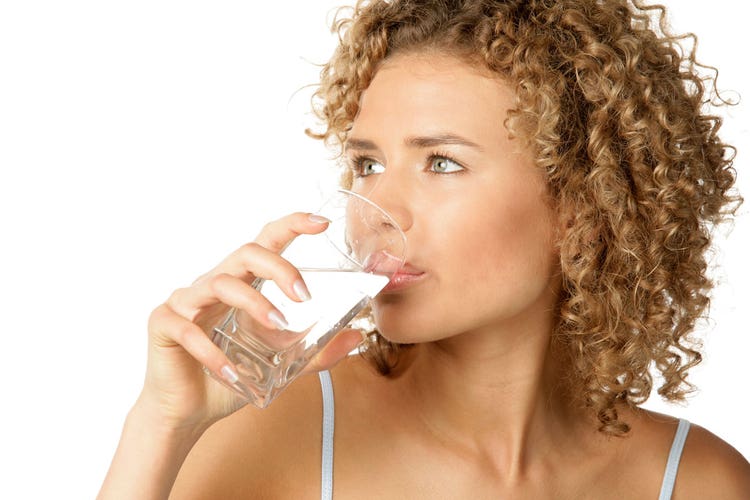
A look at how various beverages hydrate compared with water.
Our bodies are mainly made up of water—somewhere between 75 percent of our bodies when we are infants and 55 percent of our bodies in our golden years. And numerous studies show that drinking water has benefits: It helps us think better, it may help increase the body’s ability to burn fat and it may help increase the amount of calories some individuals burn. A 2016 French study found that those who drank more water had better-quality diets. This is all well and good, but do we really need to drink water?
“There is no need to drink water and, if water needs are low, there is no need to drink anything at all if a diet rich in fruits and vegetables and other foods with a high water content are chosen,” says Dr. Ron Maughan, a visiting professor at the University of St. Andrews School of Medicine in Scotland and a member of the science advisory board of the European Hydration Institute. However, the average American gets only about 20 percent of his or her water intake from food, according to a 2010 study in “Nutrition Reviews.”
So if our bodies don’t technically need water, does that mean any beverage will hydrate us?
Water: The gold standard?
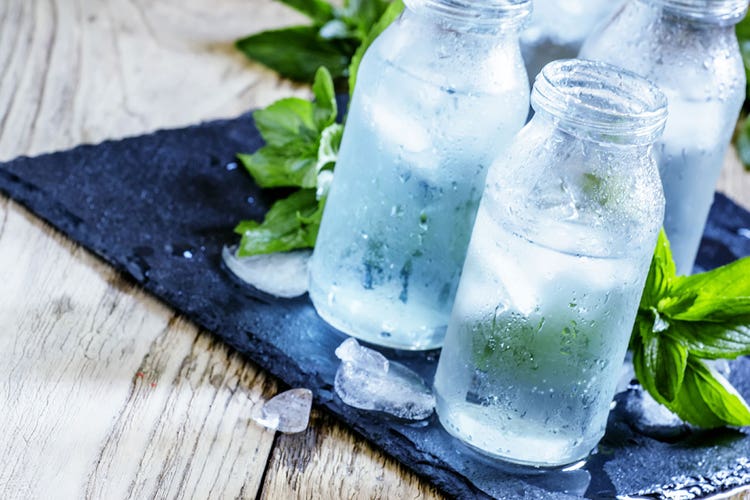
When it comes to studying hydration, water is the control to which science compares everything else. And to understand how other beverages stack up to it, it’s important to understand how you absorb the water you drink.
Like most nutrients, water is absorbed in the small intestine. The small intestine absorbs a lot of water—roughly 1 to 2 liters per day plus another 6 to 7 liters that come from your body’s own secretions of saliva and from other organs, such as the stomach and liver. Eighty percent of these fluids have been absorbed by the small intestine—or have traveled through the cell membrane in a process known as osmosis—before they reach the large intestine.
The thing about water osmosis is that it is dependent on the amount of sodium in the body. Sodium and other electrolytes help the body hold on to water and maintain a fluid balance. Fluid balance is when the amount of electrolytes in the various body fluids, such as blood and urine, are within healthy ranges. Maintaining this balance of electrolytes helps your body’s blood chemistry, muscle action and other processes. Sodium, calcium, potassium, chlorine, phosphate and magnesium are all electrolytes.
“Drinking large volumes of plain water will increase body water content, but regulatory mechanisms mean that this is quickly excreted,” Maughan says. “Drinks with a high sugar concentration will be emptied from the stomach more slowly and will be more slowly absorbed, so they may stay in the body for longer,” Maughan continues. “Likewise, salt added to drinks or salty food added to drinks will help retain water in the body—the salt acts like a sponge, holding the water in the body.” Knowing this, read on to learn about how various beverages hydrate the body.
Coconut water vs. water
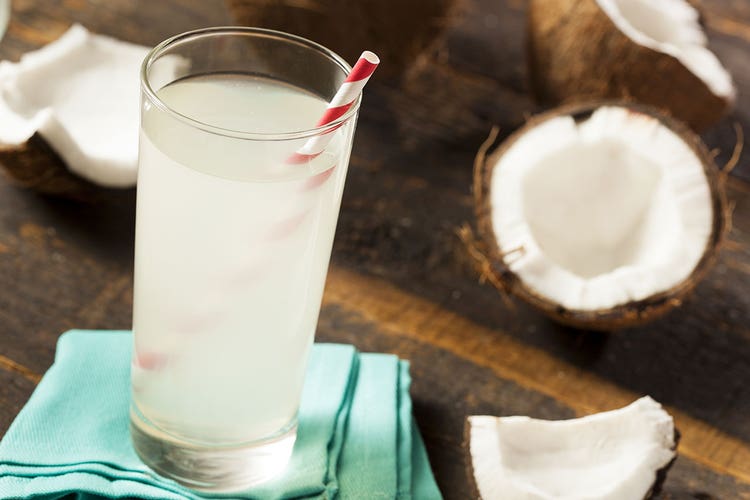
If you listen to the hype surrounding coconut water, you may think that it is nature’s sports drink or even that it hydrates better than water. According to the Academy of Nutrition and Dietetics, coconut water isn’t the perfect sports drink because it doesn’t replace the amount of calories, sodium and electrolytes that are lost through vigorous exercise that sports drinks do.
However, in a head-to-head comparison published in the “Journal of Physiological Anthropology and Applied Human Science,” coconut water provided comparable hydration to sports drinks and plain water in eight subjects who had worked out at 60 percent of their maximum effort in a warm environment until 2 percent of their body weight was lost through sweat. This small, preliminary study shows that coconut water can rehydrate you after vigorous exercise but no faster or better than plain water.
If sports drinks upset your stomach, one of the side findings of the study was that coconut water caused less nausea, less fullness and no stomach upset. So in this case, coconut water can help to rehydrate you and maintain some fluid balance.
Coffee and tea vs. water
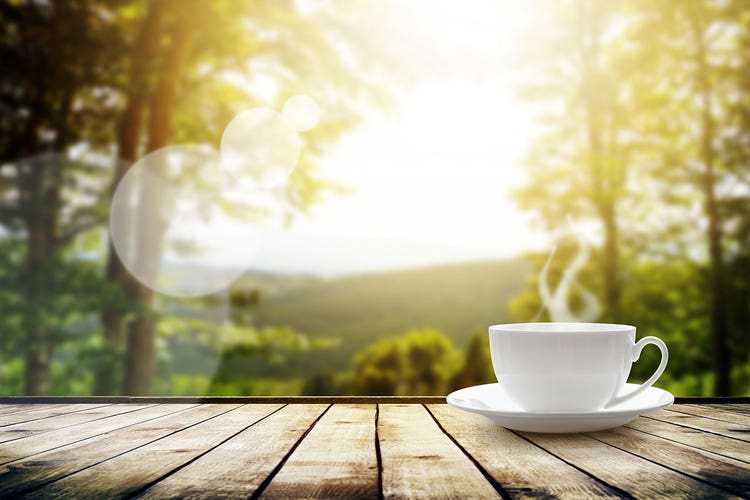
It is a myth that caffeinated drinks, such as tea and coffee, cause dehydration. “It is unlikely that anyone gets dehydrated from drinking coffee or other caffeine‐containing beverages. Telling people not to drink tea, coffee or cola is likely to cause dehydration as people do not replace these with equal volumes of other drinks. There is some habituation to caffeine but not as much as might be thought,” Maughan says.
In fact, research that showed caffeine caused dehydration was done over short periods of time using high-strength caffeine pills at intakes of 200–500 milligrams of caffeine per dose—much higher than the amount in tea (40–50 milligrams), coffee (75–100 milligrams) or energy drinks (80–120 milligrams). “Caffeine does have a diuretic effect, but it takes a fairly large dose to get that effect—typically at least 250 to 300 milligrams, which is far more than you will get from the average cup of coffee, unless you drink a ‘grande’ size,” states Maughan. “Regular caffeine users will be less affected than those who never consume caffeine, but there is still an individual variability in response that is not well-understood.”
Ultimately, it’s the caffeine content that matters, as does the amount of water you consume at the same time, says Carrie Ruxton, a doctor and registered dietitian who has studied the effects of caffeine in tea on the body. “So an espresso (high caffeine, small volume) would be more likely to dehydrate than a large mug of tea with milk (low caffeine, large volume). However, caffeinated drinks are mostly water, which offsets the effect of caffeine.”
Juice vs. water
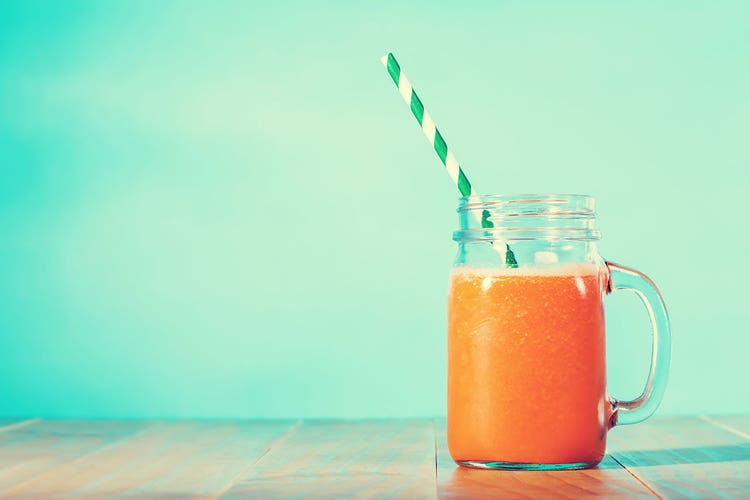
Maughan’s research, published in the “American Journal of Clinical Nutrition,” looked at the hydrating capabilities of 13 different beverages, including water. Orange juice, which is made up of 89 percent water and contains some potassium and carbohydrates, was found to be effective at maintaining fluid balance within the body over a longer period of time compared with water. In fact, his research found that “drinks containing the highest macronutrient and electrolyte contents were the most effective at maintaining fluid balance.”
Sports drinks vs. water
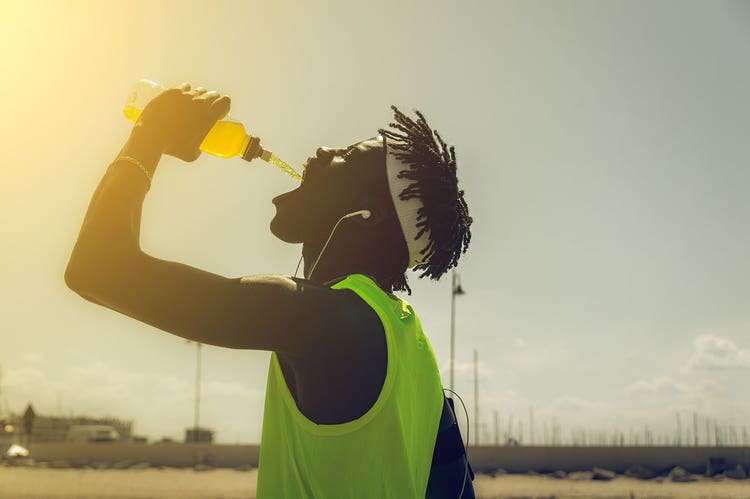
Almost any fluid is hydrating. “There are going be times when plain water is all you need,” says Laura Daray, senior scientist at the Gatorade Sports Science Institute, “for instance, throughout a typical day, for shorter workouts or for very low sweating types of conditions. Then, there are going to be instances where an electrolyte-containing water [or sports drink] may be a better fit for you.”
When you lose sodium through sweat, sometimes you need electrolytes to truly rehydrate and replenish the water your body has lost. Electrolytes are usually contained in sports drinks.
“Sodium is going to help with fluid retention, and this means it’s going help an individual hang on to more of the fluid that he or she is consuming, as opposed to losing it through urination. Sodium’s also going help drive thirst. This mean that it’s going help a person voluntarily drink more, and do a better job at replacing fluid losses, as opposed to when just drinking plain water,” Daray explains.
And as Maughan’s research found, sports drinks hydrate as well as water does—and help maintain fluid balance.
Sparkling water vs. water
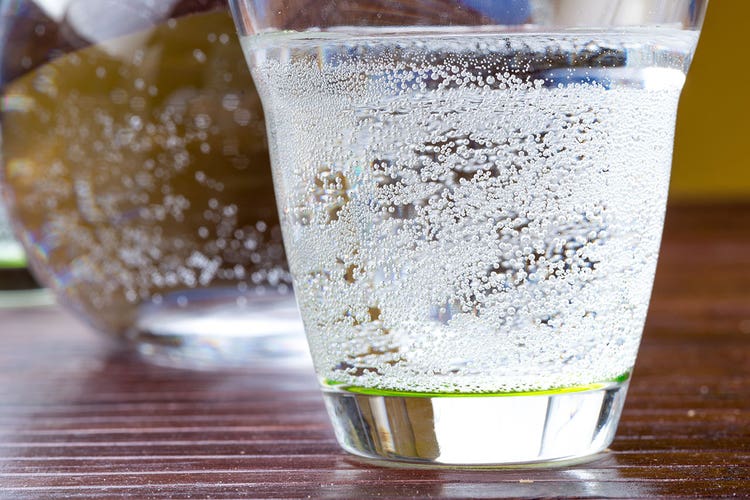
When it comes to hydrating with water, whether your water has bubbles in it or not doesn’t really make a difference. “There may be small differences, but these are trivial,” says Maughan.
Ultimately, drinking any beverage will help keep you hydrated. Knowing how your body reacts to each one will help you decide the right hydrator for you.
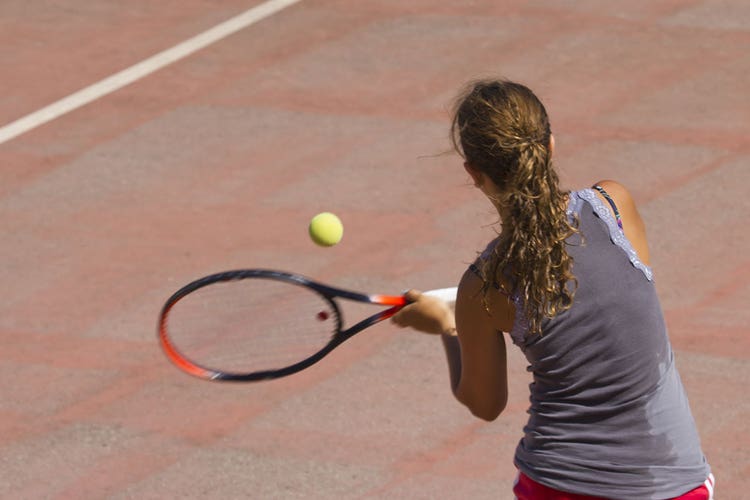
Photo credits: studiovespa, Adobe Stock; 5ph, Adobe Stock; Brent Hofacker, Adobe Stock; robert, Adobe Stock; Kar Tr, Adobe Stock; caprasilana, Adobe Stock